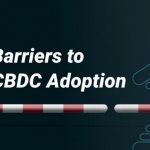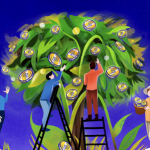In the last moments of 2019, a 34-year-old doctor realized that a virus running through his hospital was a great threat to the public. The doctor, named Li Wenliang, tried to warn fellow medical students in his residential cohort that a certain coronavirus present in a number of patients resembled a viral respiratory disease that ravaged Southern China and spread in a frighteningly rapid outbreak through Asia, the SARS coronavirus. He messaged his classmates in a private WeChat group about the presence of the disease and that its origin had possibly been a particular seafood market in the city, urging all to take necessary precautions to avoid possibly infecting their families.
Screenshots of that private discussion, however, were leaked onto public forums. As a result, Li was admonished by his direct superiors at the hospital for leaking medical information and for speculating too haphazardly on the danger of the disease. Then, on January 1st 2020, the government got a hold of him. Officials from the Chinese communist party publically reprimanded him for “spreading rumors” and fear-mongering, making “untrue statements” on social media about “SARS.”
Six weeks later, the death toll from the Wuhan continues to rise, over 1000 lives lost in over 40 countries, and among them, Doctor Li, who is survived by his wife and daughter. Following Dr. Li’s warnings, Wuhan’s municipal government actively buried the warning signs of the coming epidemic. By the time the severity of the disease became clear and undeniable, Wuhan and other cities across China were unprepared and unresourced for the fight.
Certainly, Dr. Li could not have single-handedly stopped an outbreak of this highly contagious disease. However, his story highlights the fact that public health is contingent upon a healthy public life. That is to say, the physical wellbeing of the public cannot be divorced from healthy public practices, such as freedom of expression, mutual aid, and adequate resource allocation for necessary services. The local Wuhan government, especially its mayor who offered to resign in the aftermath of the outbreak, has admitted to mismanagement and bureautic oversight. However, these particular decisions only manifest larger cultural considerations. In order to prevent future tragedies like Dr. Li’s, our societies will need to foster cultures of greater freedom of expression, greater local autonomy, and the democratic allocation of resources.
Blockchain technology can be a crucial part of this transformation into a healthier future. Contemporary technologies inevitably play a large role in determining how a historical health crisis is handled. The management of medical records, the communication of travel and health advisories, even the administration of supply chains and electrical power — all of these aspects of healthcare depend on a society’s technological infrastructure. With decentralized technologies, the administration of these necessary technologies can be made far efficient. Efficiency, it should be noted, often denotes expediency or good economic practice, but here it refers to the practice of saving lives in a crisis, under the pressure of finite time and resources, wherein every technological advancement seeks to benefit patients in need.
And finally, a decentralized world is one in which doctors have the freedom to express their medical opinions to their peers and institutional higher-ups without fear of rebuke. Blockchains, as sites of public communication and record, can resist unnecessary censorship and promote a culture of collaboration and free expression that is needed to address unforeseeable tragedies. It is understandable, of course, that the Chinese government would not want a hysteria to break out over an unverifiable medical claim. With blockchain, however, the freedom to express something can be coupled with the verification of a participant’s credibility, their evidence, and their authority or institutional affiliation.
Voices like Dr. Li’s can be heard — in fact, they must be heard — without causing constant panic in mature societies. We need technology that allows us to hear each other when crisis looms and trust each other when it strikes. Blockchain technology can make the promise of such a future our not-too-distant reality.





